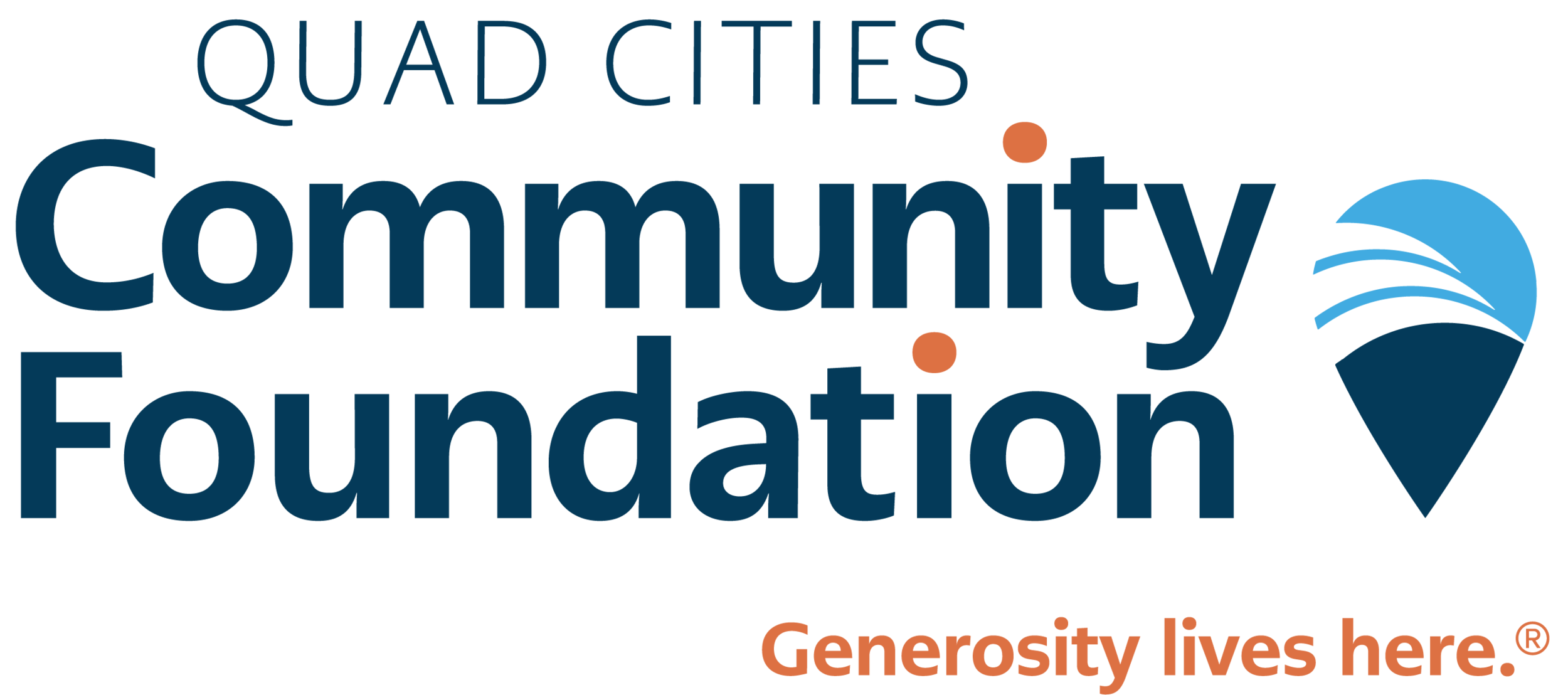Quad Cities Community Foundation makes largest Transformation Grant in organization’s history
Three-year, $350,000 grant will address affordable housing crisis in the Quad Cities
The Quad Cities Community Foundation announced today that its latest Transformation Grant will be awarded to the Quad Cities Housing Council (QCHC) to support affordable housing solutions in the region.
Made possible by the generosity of donors who give to the Community Foundation’s Quad Cities Community Impact Fund, the $350,000 grant will be distributed over three years, with an initial emphasis on building QCHC’s internal capacity and a later focus on implementing projects in line with the organization’s Silos to Solutions Affordable Housing Vision for 2030.
This is the largest Transformation Grant in the Community Foundation’s 57-year history and is part of the organization’s commitment to and action toward building an equitable, inclusive Quad Cities region.
“Without safe, decent, and affordable housing for all, our community can’t thrive,” said Randy Moore, board chairperson and interim president and CEO of the Community Foundation. “A challenge as central as this requires significant and sustained support, and we’re confident that making just such an investment in the Quad Cities Housing Council will mean a more prosperous and equitable community for everyone who calls the Quad Cities home.”
“Right now, we have a golden opportunity to seize,” said Leslie Kilgannon, director of QCHC, which coordinates affordable housing activities and programs with the area’s nonprofit housing services providers and developers. The organization is the resource development arm of the Quad Cities Housing Cluster, a 60-member coalition of nonprofit and for-profit entities dedicated to collaboratively addressing the overall housing needs and opportunities in the Quad Cities.
While the COVID-19 pandemic didn’t create the affordable housing crisis in the Quad Cities, Kilgannon explained, it did exacerbate the problem and bring more widespread awareness to it. Now, governments, philanthropists, and communities have begun to look beyond the immediate emergency response to the pandemic and consider long-term recovery and infrastructure. “As we see our society coming to an acknowledgment that before the pandemic things weren’t working for everybody, we need to forge a new path. At the Council, we have the vision, we have capable entities with proven track records, and now we have this major investment.”
We have to keep telling the story about why we need more safe, decent, and affordable housing for everyone in our community.
—Leslie Kilgannon
Based on nearly a year of research, community engagement, and diverse feedback and input, QCHC’s Affordable Housing Vision outlines six concrete strategies for addressing the affordable housing crisis in the region, including producing more affordable units, preserving existing units, protecting tenants’ rights, providing services that support housing stability, raising local housing funds, and growing community partnerships around the issue.
“The most important thing to know about our vision is that it’s achievable,” said Kilgannon. “The problem of affordable housing can seem so overwhelming that some people want to throw up their hands and walk away. But with our vision and these six strategies, we’re saying that there actually are things we can do to move the needle not just a little bit but a lot. It’s a tall order, but we have tangible strategies we can implement.”
For the first year of the grant, QCHC will focus on increasing internal capacity, including hiring additional staff for administrative support and to foster a stronger presence on the Illinois side of the river. Securing a streamlined grants management system, a data collection system, and communications support will allow Kilgannon to spend more time raising additional funding and conducting advocacy work on local housing policy.
“This foundational work is so important,” said Kilgannon. “We have to keep telling the story about why we need more safe, decent, and affordable housing for everyone in our community.”
Priorities for years two and three will likely include raising and distributing additional funds, leading policy work to encourage or require more affordable units in new multi-family developments, acquiring and rehabilitating properties as affordable rentals, and establishing a tenant alliance, among other projects.
“The Community Foundation has been a longstanding supporter of our efforts,” said Kilgannon. “They’ve been a vociferous advocate for greater investment in affordable housing. Now, they’re taking a leadership role, and with their support, we’ll be able to engage, excite, and motivate other community stakeholders. This grant is transformational in that it sends a message out to the rest of the community that this is a vision worth investing in.”
“We’ve had the privilege of learning about the affordable housing crisis by engaging at the table with the Quad Cities Housing Council,” said Kelly Thompson, the Community Foundation’s vice president of grantmaking and community initiatives and a member of the task force that developed QCHC’s Affordable Housing Vision. “Thanks to the support of generous donors across our community, we’re proud to be part of the Council’s work—and to help it raise the bar for what it can do going forward.”
The Community Foundation has demonstrated a commitment to housing since the beginning of the Transformation Grant program. In fact, the very first $100,000 Transformation Grant in 2015 went to the Quad Cities Housing Council for homelessness prevention, and last year, the Community Foundation awarded a Transformation Grant to Humility Homes and Services to support long-term solutions for community members experiencing homelessness and end the need for Humility’s emergency winter shelter.
During this multi-year commitment to advancing affordable housing in the Quad Cities, the Community Foundation will also continue to support timely opportunities in other focus areas with at least one additional $100,000 Transformation Grant in each of the coming years. Other past recipients of Transformation Grants include the United Way Women United Born Learning Initiative, Family Resources’ Comprehensive Care Coordination Services Program, Grow Quad Cities for the Q2030 Regional Action Plan, Robert Young Center, Child Abuse Council, Vera French Mental Health Center, Mercado on Fifth, and the East Moline and United Township School Districts.

